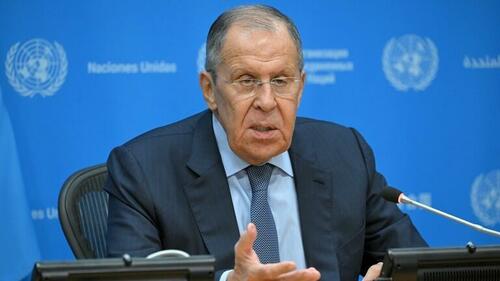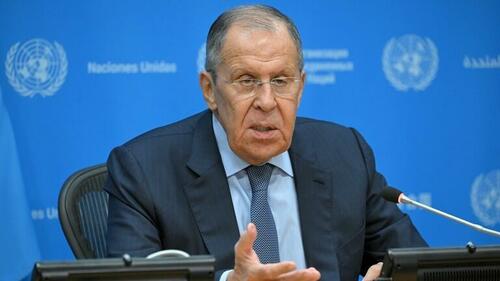Lavrov Warns “West Is Escalating Conflict” Just After Putin Signs Nuclear Doctrine Expanse Into Effect
Starting in late September, Russia had unveiled its expanded nuclear doctrine which proposed a lowered threshold for Russian strategic forces’ use of nukes. This was due to the “emergence of new sources of military threats and risks for Russia and our allies” – amid fiercer drone and missile attacks coming across the border from Ukraine. This change in nuclear doctrine has now been formally signed into effect by President Vladimir Putin on Tuesday, two days after President Biden authorized Ukraine to begin conducting long-range strikes inside Russia with US-made missiles.
Ukraine has already taken advantage of that, also on Tuesday, using a MGM-140 Army Tactical Missile System to strike a military installation in the western Bryansk region. “For the first time, Ukraine’s Defense Forces struck Russian territory with ATACMS ballistic missiles,” RBC Ukraine news agency reported Tuesday.
RBC Ukraine said the military facility near the city of Karachev in the Bryansk region was successfully hit with ATACMS after six missile were fired (with Russia saying it intercepted five of them). This location was about 115 kilometers (71 miles) from the border with Ukraine.
Kremlin spokesperson Dmitry Peskov has described that the nuclear doctrine changes mean that “the Russian Federation reserves the right to use nuclear weapons in the event of aggression using conventional weapons against it and/or the Republic of Belarus.”

“An important element of this document is that nuclear deterrence is aimed at ensuring that a potential adversary understands the inevitability of retaliation in the event of aggression against the Russian Federation or its allies,” Peskov said.
Thus this is the key change and lowering of the threshold – that even conventional weapons used by an enemy could trigger nuclear retaliation if deemed enough of a threat against Russia and its sovereignty.
The Associated Press also spells out, “The new doctrine allows for a potential nuclear response by Moscow even to a conventional attack on Russia by any nation that is supported by a nuclear power.”
Alarmingly, Peskov has already said that a Ukrainian attack like today’s could potentially trigger it:
Asked Tuesday if a Ukrainian attack with longer-range U.S. missiles could potentially trigger a nuclear response, Kremlin spokesman Dmitry Peskov answered affirmatively, pointing to the doctrine’s provision that holds the door open for it after a conventional strike that raises critical threats for the “sovereignty and territorial integrity: of Russia and its ally, Belarus.”
Also according to the newly expanded doctrine, in the event Western powers assist another nation in a major attack on Russian soil, those same Western powers will also be held responsible. This can trigger Russian nuclear launch. This appears to be why Peskov answered in the affirmative.
Russian Foreign Minister Sergey Lavrov has addressed the nuclear doctrine change from Brazil’s Rio de Janeiro on the sidelines of the G20 Summit.
He asserted that Russia’s position is that nuclear war won’t happen, and that fundamentally Russian nuclear doctrine doesn’t differ from the United States’. But still, he added, Russia will “react accordingly” to Ukraine firing a US long-range missile.
⚡️ They want escalation – Lavrov on Ukraine’s use of ATACMS in Bryansk#G20 pic.twitter.com/I4BUFtwfSu
— RT (@RT_com) November 19, 2024
He expressed hope that the West will study the update in Russia’s nuclear doctrine. “The West appears to be working towards escalating the Ukraine conflict,” he said. Meanwhile the US has indicated it won’t respond to Russia’s nuclear doctrine move.
Tyler Durden
Tue, 11/19/2024 – 09:25

